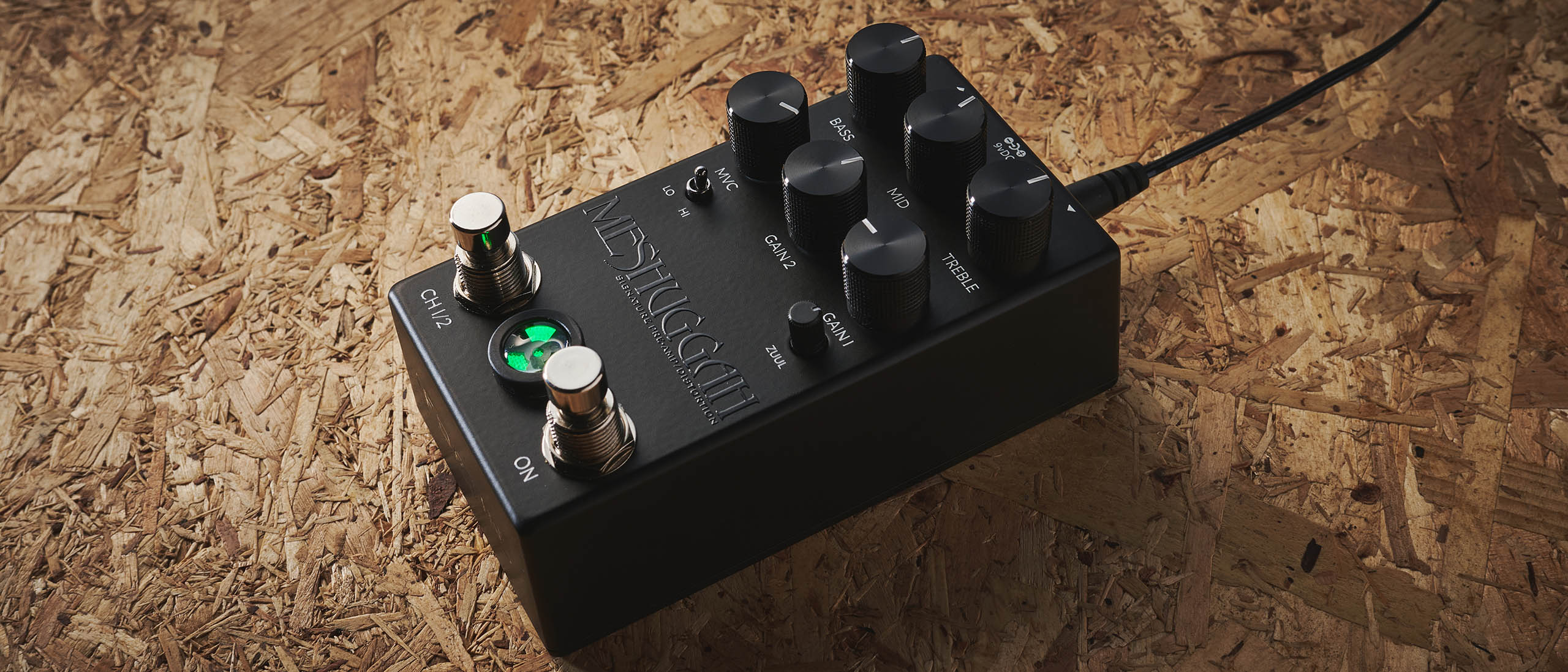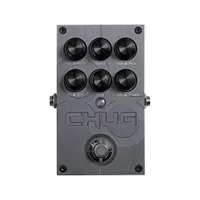Guitar World Verdict
There's little access to the unobtainium amp that inspired it, so it’s difficult to know exactly how close Fortin have managed to come to replicating it in a pedal. But on its own merits, the Meshuggah Preamp/Distortion is a job well done.
Pros
- +
Some of the tightest, most vicious modern metal tones you'll find anywhere.
- +
Lots of flexibility in a small, convenient enclosure.
- +
Impeccable build quality, albeit at a price.
Cons
- -
You might step on the wrong footswitch.
- -
It isn't necessarily quick and easy to find 'your' sound.
You can trust Guitar World
What is it?
If you’re a metal guitarist, you probably listen to Meshuggah. Of all the heavy bands to reach global fame over the last three decades, these Swedish virtuosi are among the most influential.
Their unique, off-kilter style helped create the blueprint for many of the best-known metal acts of recent years, and the crushing, percussive, down-tuned guitar sound of Fredrik Thordendal and Mårten Hagström remains iconic among metal guitarists.
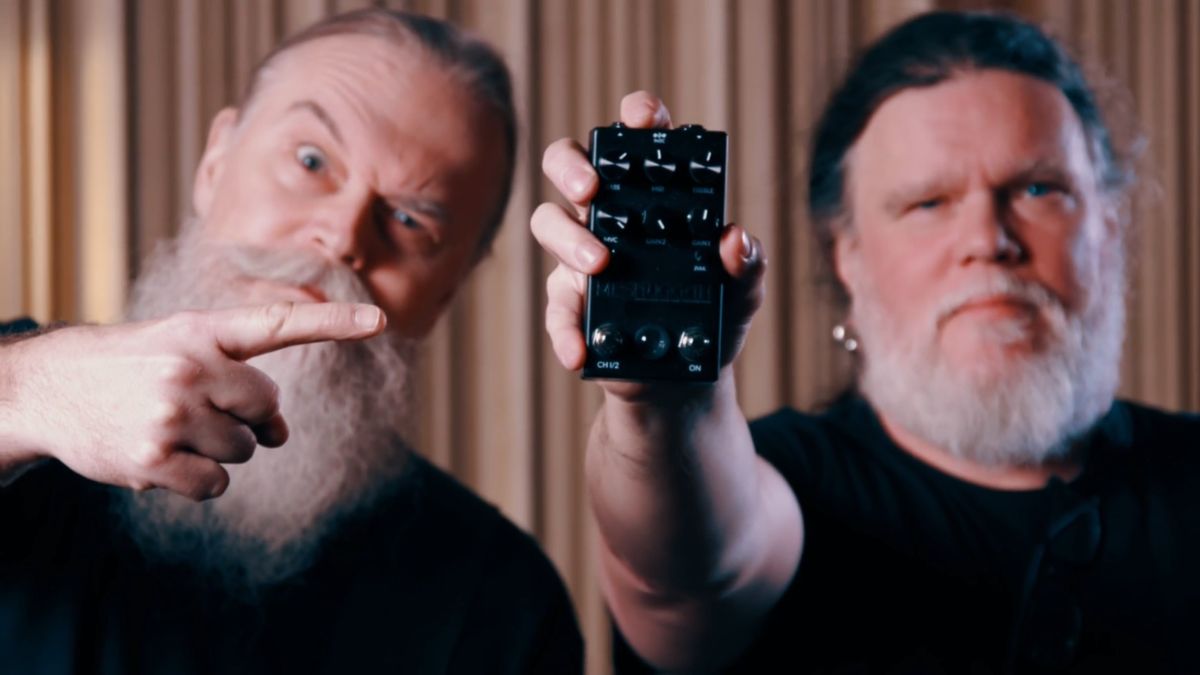
In theory this is as close as it gets to their sound in pedal form
Can that really be boiled down into a pedal? Fortin Amplification reckon so – and since it's built the amps that Thordendal and Hagström have used since 2016, perhaps it has a better claim than anyone else.
The Meshuggah Preamp/Distortion, as the name suggests, is based on the preamp and gain structure of Meshuggah's amps – which were only released in very limited numbers, destined to be forever out of reach of most players. In theory, then, this is as close as it gets to their sound in pedal form.
Specs
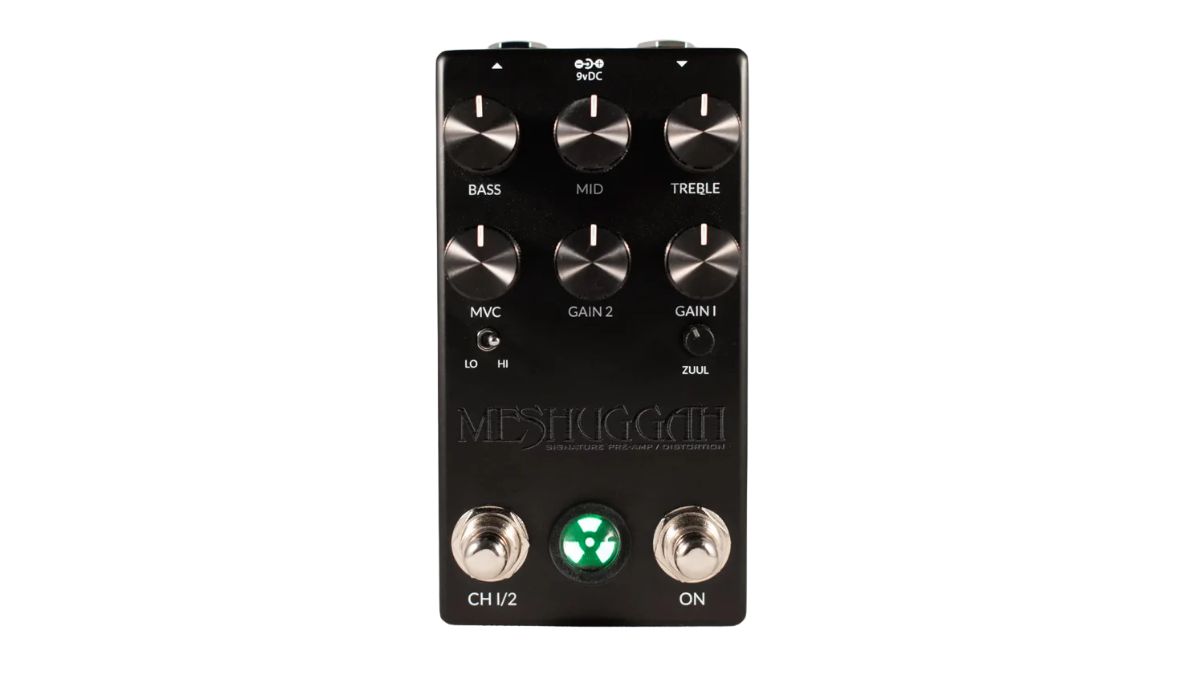
- Price: $349/£349
- Type: Preamp/distortion pedal
- Controls: On/off footswitch, Green/Red channel select footswitch, Lo/Hi gain toggle switch, MVC master volume, Gain 1, Gain 2, Zuul noise gate, Bass, Middle, Treble
- Features: Two channels, four modes, built-in Zuul noise gate
- Connectivity: Guitar input, amp output
- Bypass: True
- Power: 9V, approx. 125mA (power supply only)
- Dimensions: 63x55x112 mm
- Weight: 330g/11.6oz
- Contact: Fortin Amps
Build quality
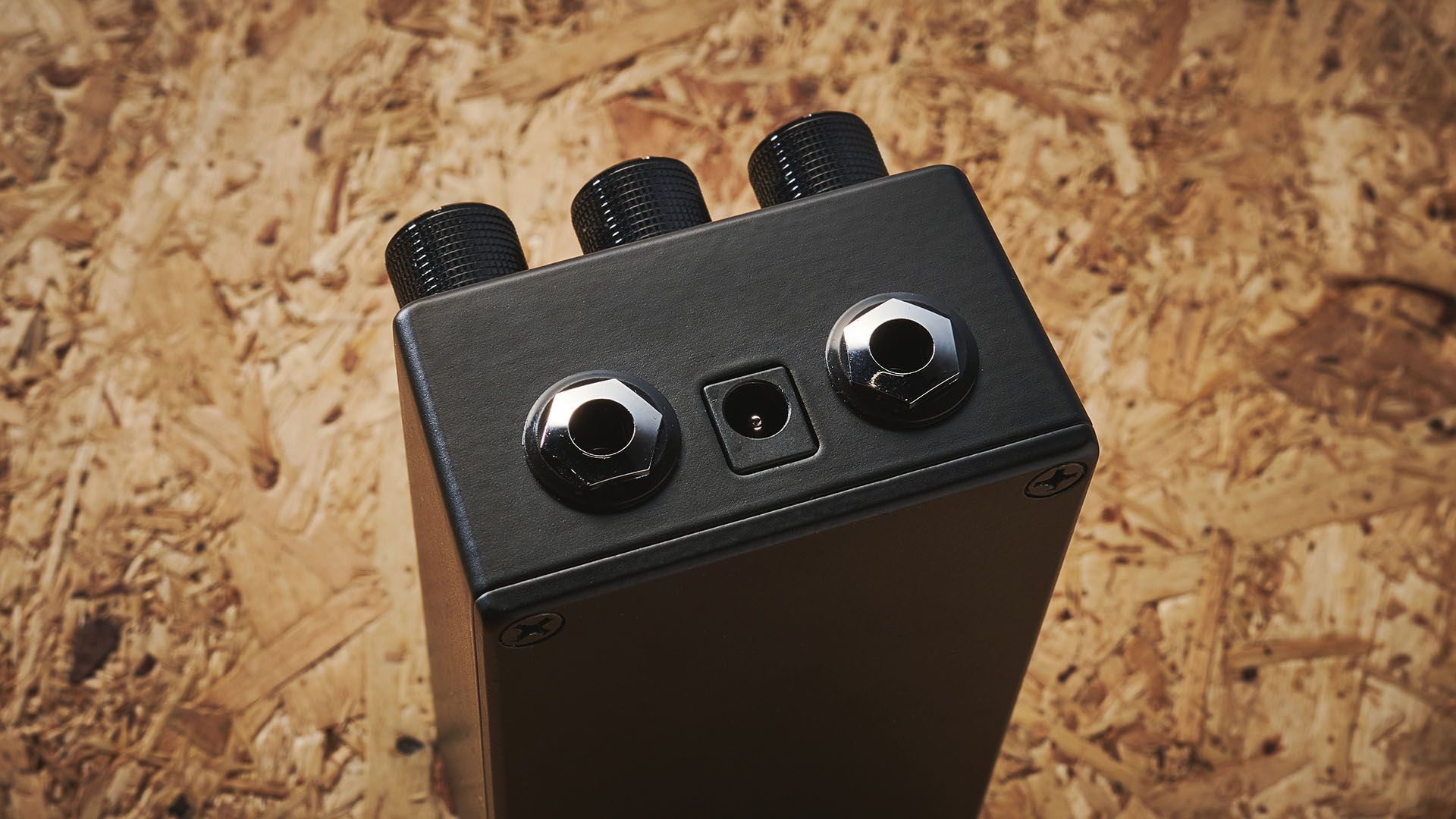
Build quality rating: ★★★★★
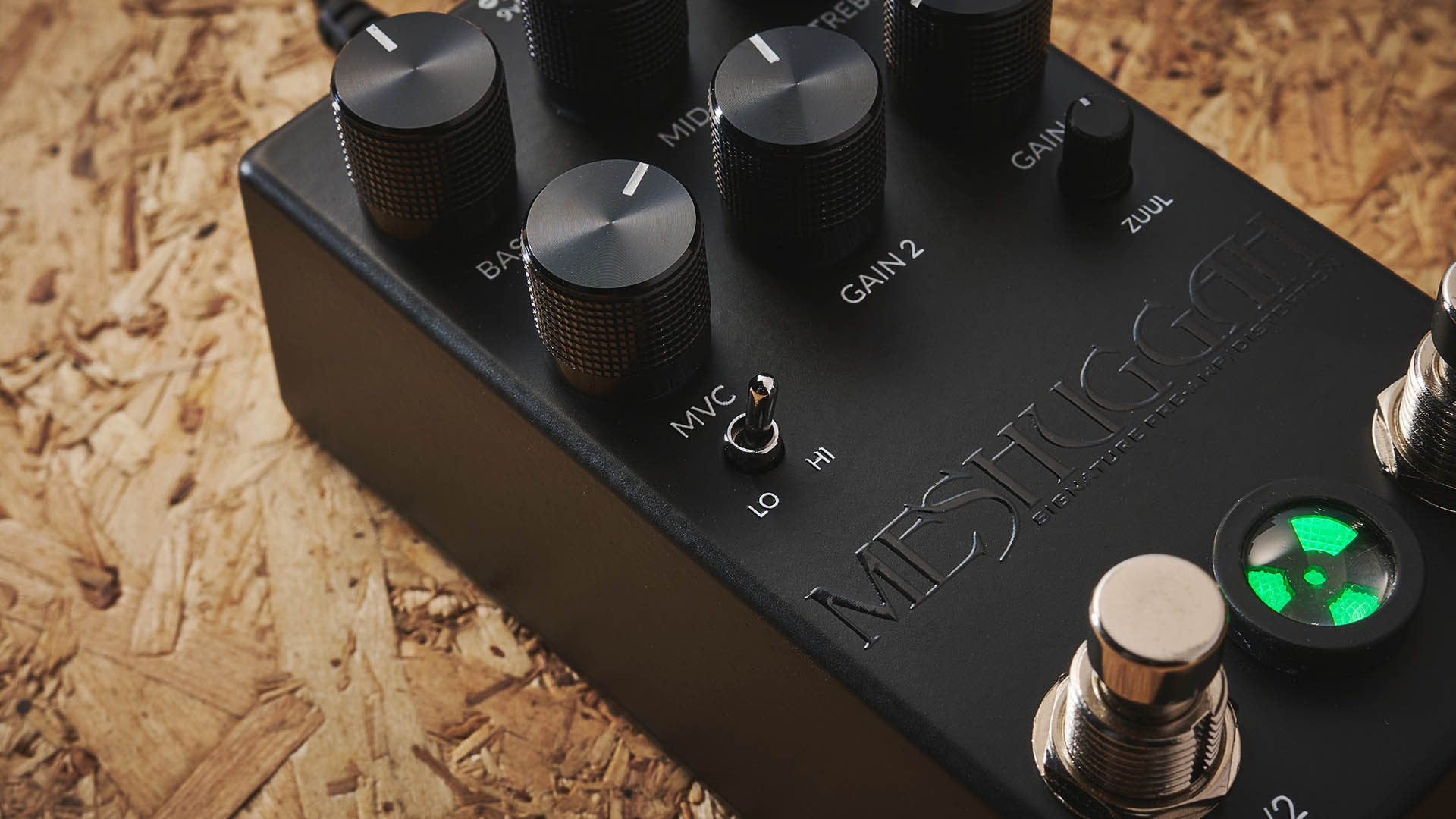
That chunky price calls for build quality to match, and that is certainly the case - every pot, jack and switch feels unimpeachably solid. The stealthy black-on-black Meshuggah logo suggests this pedal means serious business.
The jacks are mounted on the top to suit tighter pedalboards, alongside the 9v input - due to the relatively high current draw, around 106mA, this is the only way to power the Meshuggah.
All the latest guitar news, interviews, lessons, reviews, deals and more, direct to your inbox!
Usability
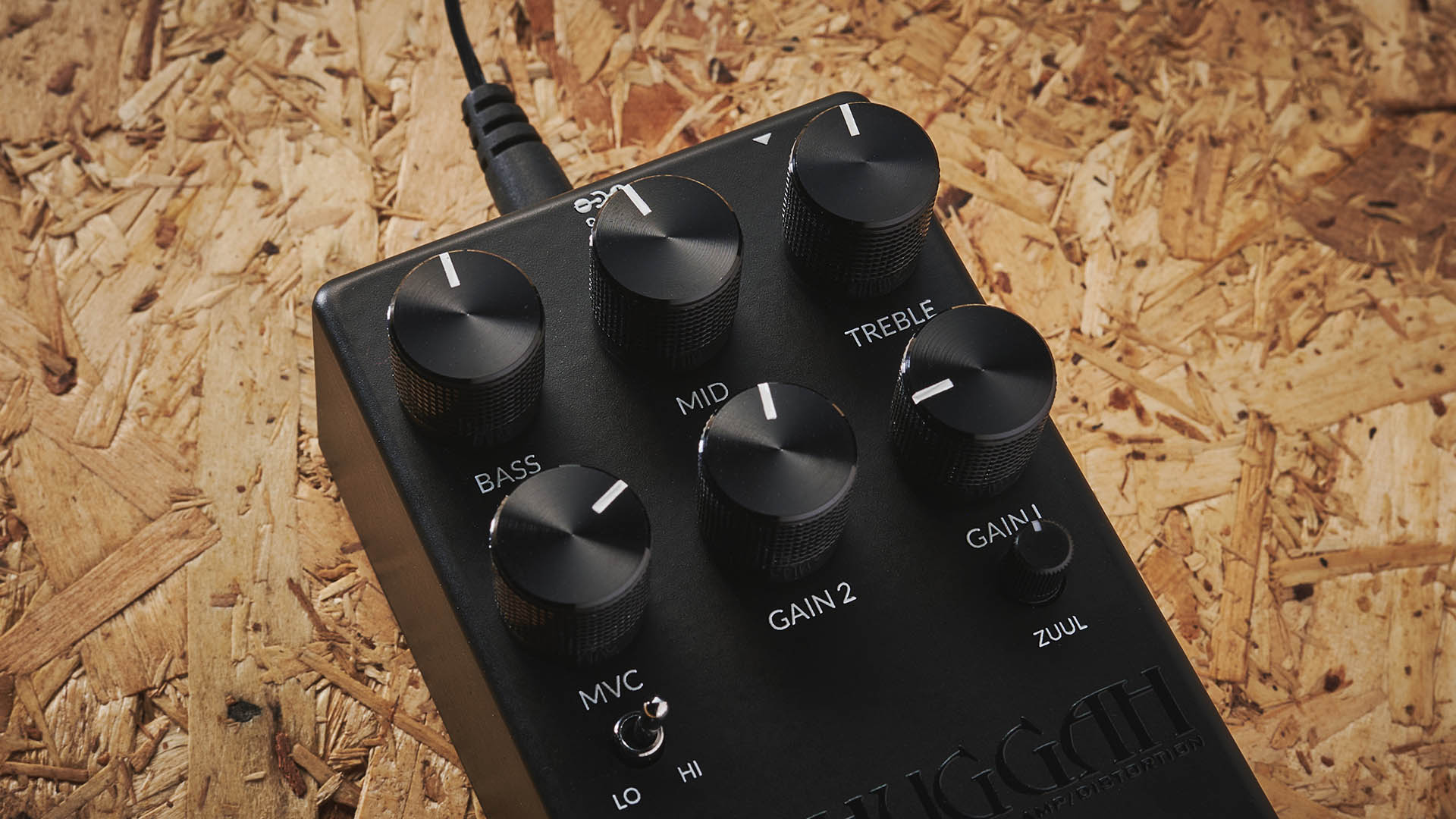
Usability rating: ★★★★☆
Fortin is no stranger to modified Marshall circuitry, and here - a bit like a Plexi with a jump-lead between channels - we have two gain controls. There are two foot-switchable ‘channels’ here, Red and Green, indicated by a nuclear-symbol jewel light. On the Green channel, only Gain 2 is operative. Gain 1 and 2 are cascaded on the Red channel.
Lo is voiced for ‘chimey’ vintage tones, while Hi, naturally, promises sonic devastation
Next is a master volume for overall output, and a three-band active EQ. Fortin makes a point of mentioning that these controls are heavily interactive – judicious tweaking may be required to hone in on a preferred setting.
By the master volume, we find a two-way mini switch toggling Hi and Lo modes, another feature adapted from the Meshuggah amp. Lo is voiced for ‘chimey’ vintage tones, while Hi, naturally, promises sonic devastation.
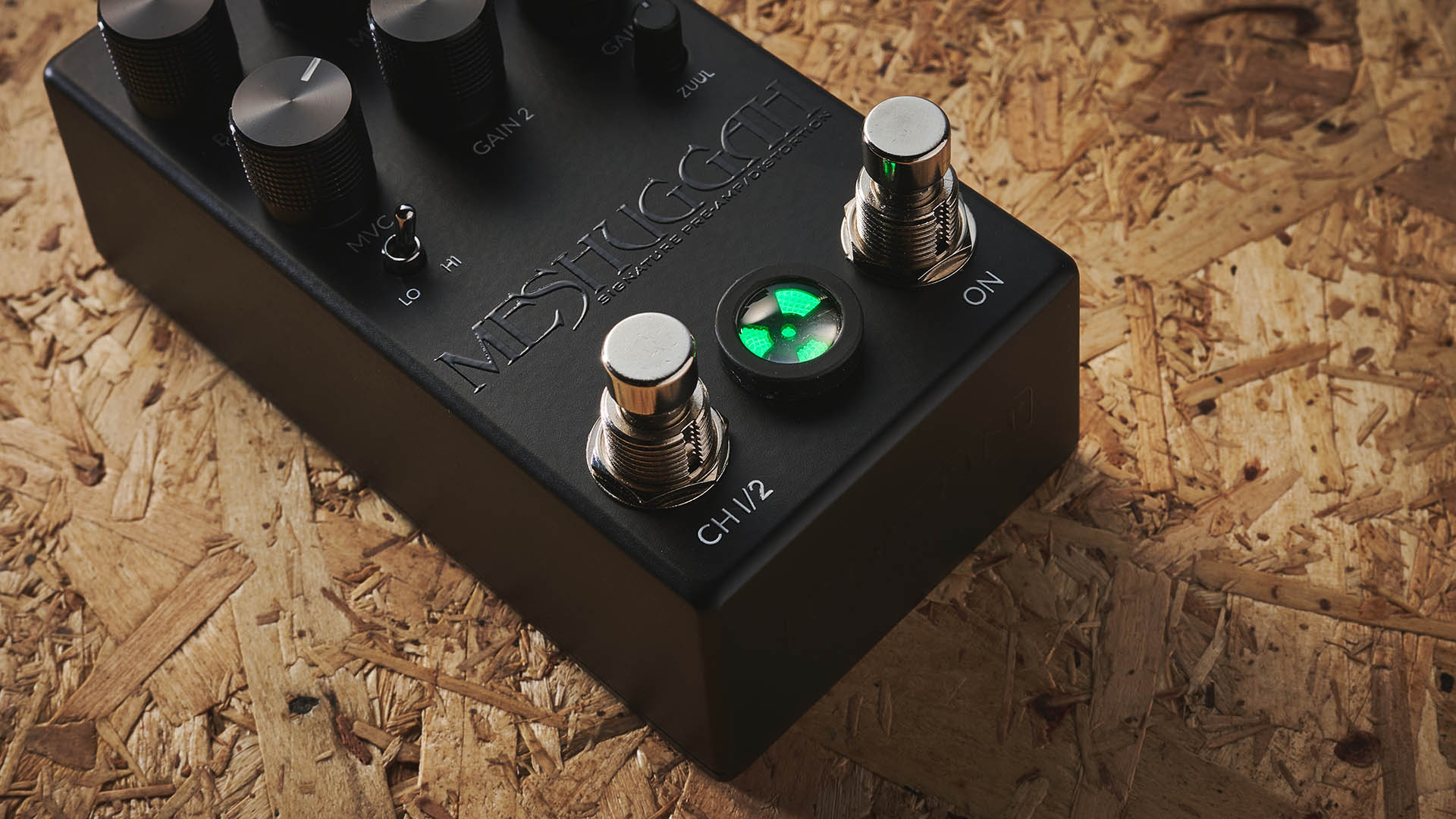
Finally, next to Gain 1, a small knob marked ‘Zuul’. For the uninitiated, this is the name of Fortin's noise gate, available as a pedal in its own right and already popular for metal.
Two footswitches (on/off, channel selection), on a single-sized pedal, puts space at a premium - there's a danger of stomping the wrong switch in the heat of a live set. But it's possible that the Meshuggah will be a studio weapon for many buyers, so this mightn't be such a limitation.
Sounds
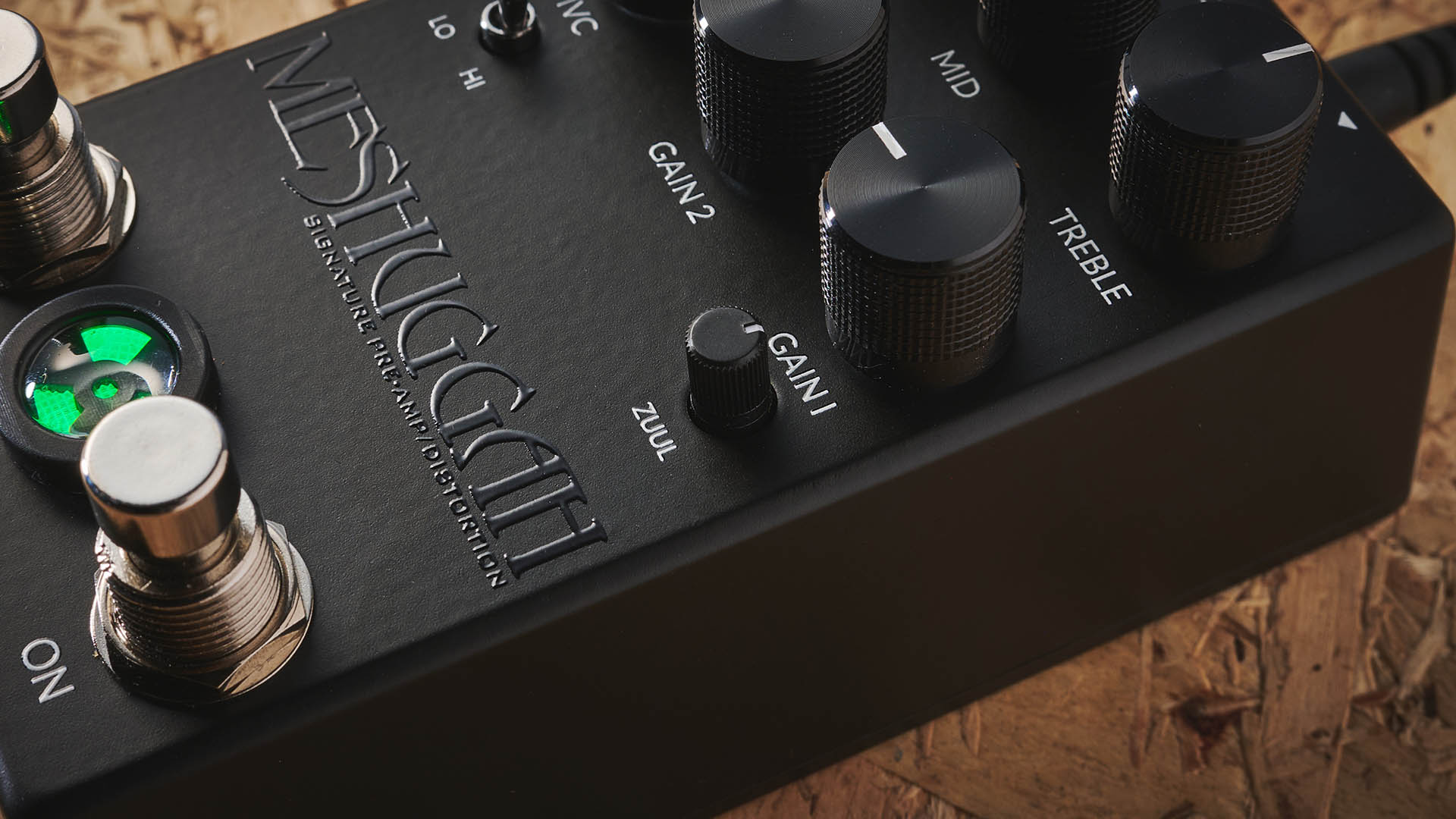
Sounds rating: ★★★★½
Fortin suggests running directly into the effects return of an amp for the best results, so I plugged into the back of my Laney VH100R - a British-voiced amp running four EL34s.
That active EQ is monstrously powerful, the Treble control so potent that some users will want to dial it back almost to nil. This isn't dissimilar to dialling in a classic Marshall though - you must set it with your ears, not your eyes. There's gigantic volume on tap too, unity being only around 9 o'clock on the pedal's volume control.
Even the Green channel, with its lower gain ceiling, is utterly vicious
Right across its huge gain range, things stay characteristically defined and clear. Though Fortin mentions vintage sounds, and there’s some bright, Plexi-esque punch to be had in Lo mode, one suspects that such things won't be a priority for many users.
Flicking to Hi mode, I'm greeted with album-ready metal tones. Even the Green channel, with its lower gain ceiling, is utterly vicious. With the EQ perfected, and both Gain 2 and Zuul controls up high, there's instantaneous, violent punch from humbuckers and scalpel-like attack from single-coils. My drop C-tuned Blackmachine B6 mightn't have met another high-gain pedal that suited it so well. In between notes… nothing. Dead silence. That gate is extraordinary.
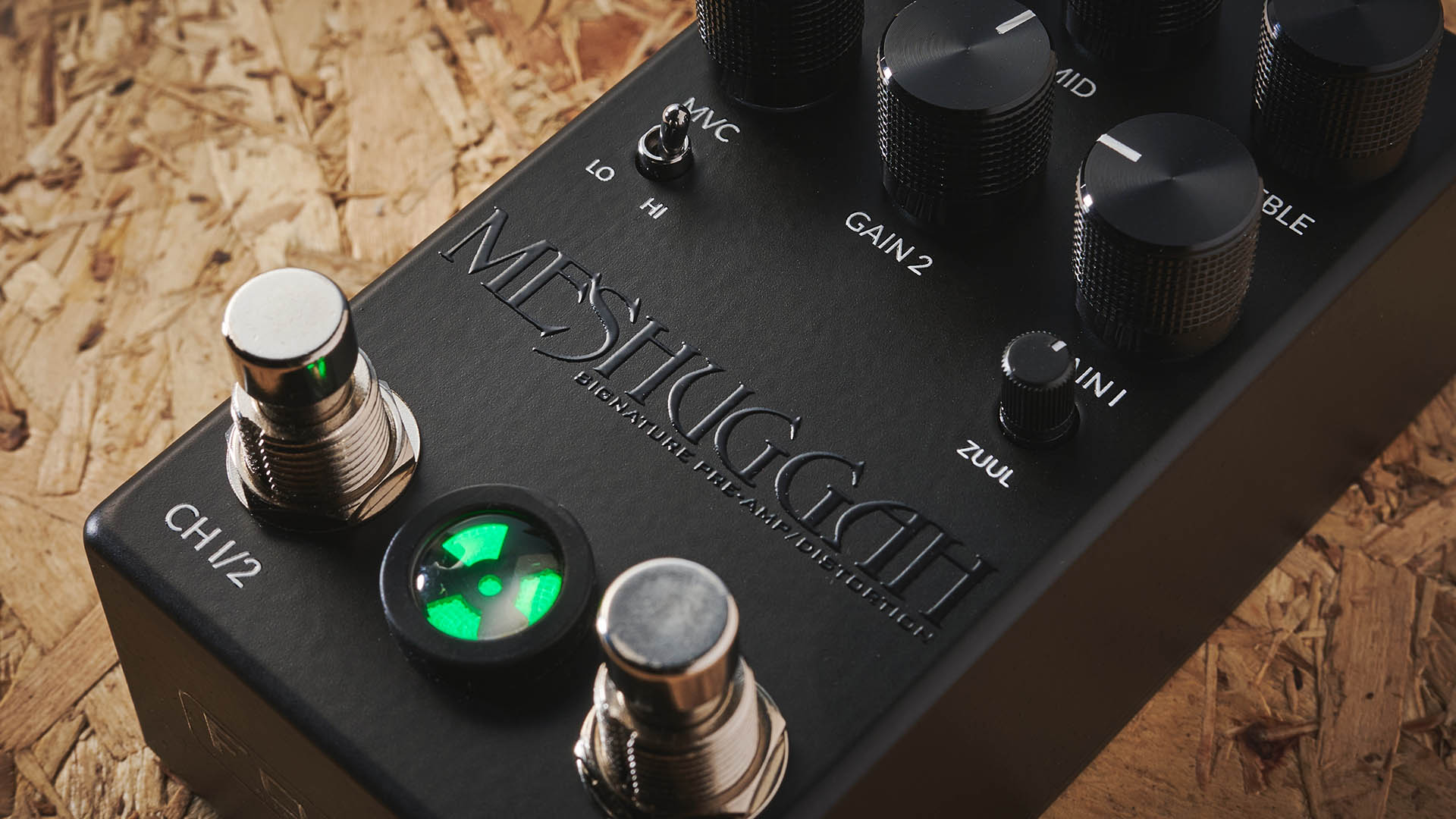
With its lightning-fast attack and powerful EQ, the Hi-mode Green channel of the Fortin would suit any seven/eight-stringer seeking optimal clarity and aggression
Metal guitar sounds aren't always about having the most gain, especially if you tune low - and there still aren't many lower-tuned bands than Meshuggah. With its lightning-fast attack and powerful EQ, the Hi-mode Green channel of the Fortin would suit any seven/eight-stringer seeking optimal clarity and aggression.
The Red channel is smoother, the second cascaded gain control allowing for more saturation. It retains tightness and power – and that gate is no less effective. Metalcore and extreme metal guitarists should want for nothing here.
If anything, this is the more versatile and adjustable of the two channels, although the glorious snarl of the high-gain Green channel is so compelling I keep returning again and again.
Verdict
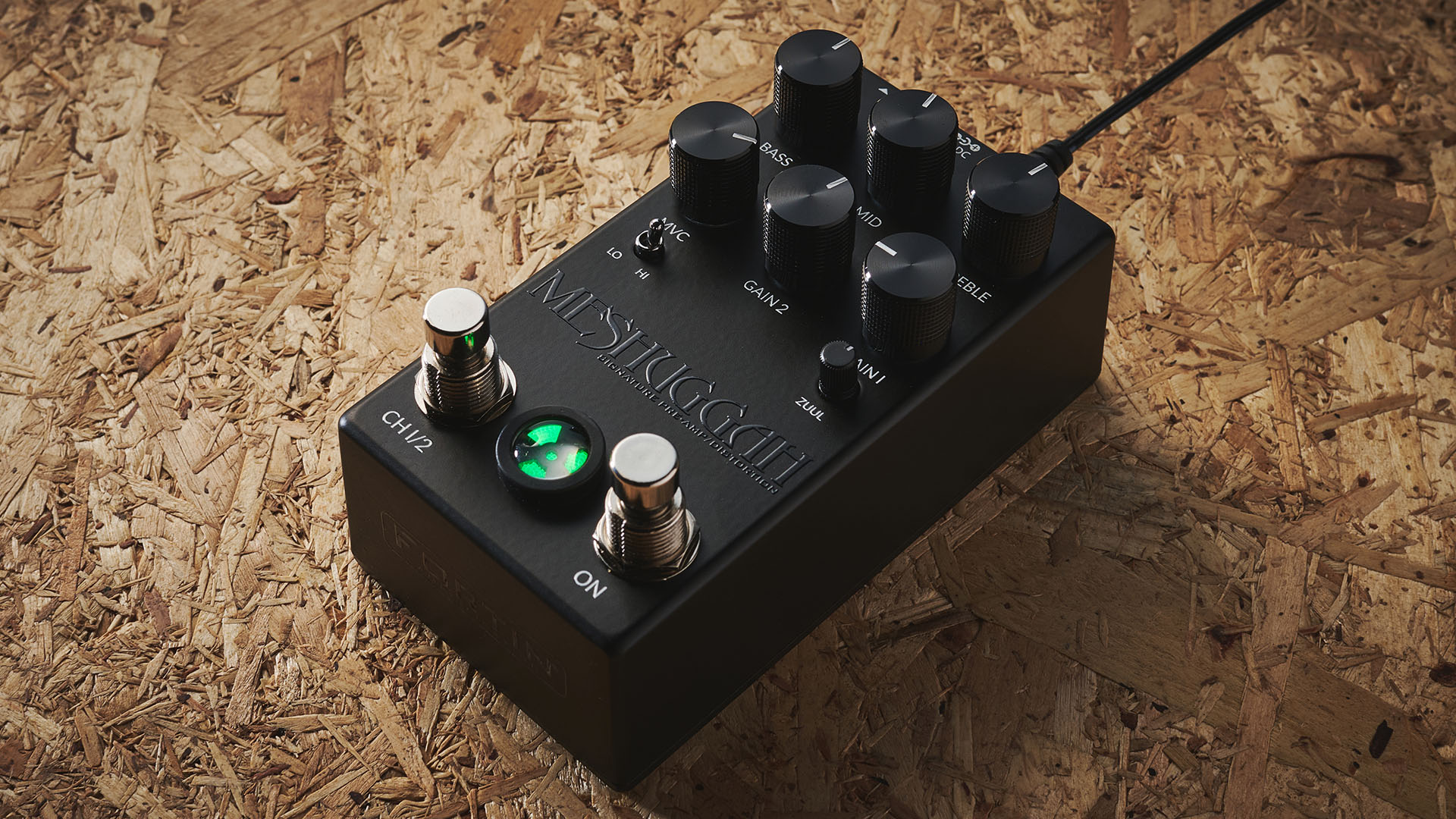
A true preamp unit with an enormous range of gain and adjustment
The Meshuggah isn't a cheap guitar pedal, but really – this kind of quality, in both development and build, isn't cheap. This is a flexible, feature-rich pedal – not another conventional distortion, a true preamp unit with an enormous range of gain and adjustment.
Despite its other potential uses though, its core brief is clear. It excels, positively stuns, at summoning the tight, immediate and percussive guitar tones of modern metal.
Guitar World verdict: There's little access to the unobtainium amp that inspired it, so it’s difficult to know exactly how close Fortin have managed to come to replicating it in a pedal. But on its own merits, the Meshuggah Preamp/Distortion is a job very well done.
Test | Results | Score |
|---|---|---|
Build quality | Premium and sleek. | ★★★★★ |
Usability | The footswitches are a little close together and you need to tweak, but there's plenty packed in here. | ★★★★☆ |
Sounds | The Red and Green channels offer versatility and devastating hi-gain between them. | ★★★★½ |
Overall | A hugely impressive tool for contemporary metal styles, with flexibility and a highly noise gate too. | ★★★★½ |
Also try
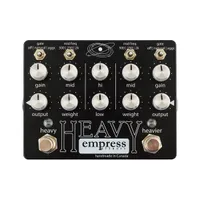
Empress Heavy - $329/£309/€379
Another twin-channel, gate-equipped metal pedal, with the seriously in-depth adjustment potential that Empress does so well.
Solar - Chug - $219/£169/€229
YouTube star and Solar head honcho Ola Englund is a 'chug' specialist, and this highly adjustable preamp promises just that. There's also the Chug Lite now too.
Read more: Solar Chug Lite review
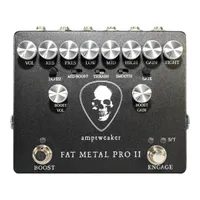
Amptweaker Fat Metal Pro II - $299
Designed specifically for down-tuning, by James Brown of Peavey 5150 fame, and packed to bursting with features.
Hands-on videos
Fortin Amps
Ola Englund
Tone Wars
You must confirm your public display name before commenting
Please logout and then login again, you will then be prompted to enter your display name.
